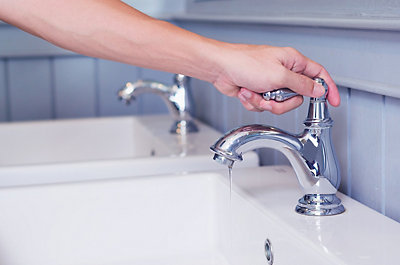HOMEOWNER TIPS
Prepare Your Plumbing Plan for Winter this Fall
October 15th, 2018
Football’s on TV, leaves are falling from the trees, the weather is crisper, days shorter. What should you do when it’s halftime? We say, be productive (during at least one of the games) and get your plumbing plan ready for winter. The average person can complete the following fall plumbing fundamentals in the time it takes your team to get back on the field. And you would score some points with your significant other for not failing to plan. Because if you fail to plan, your pipes might fail you this winter. Turn off your outdoor sprinkler system and drain the lines. The mess and cost to replace burst sprinkler lines is outrageous. Please take the time to turn off your system and drain. Otherwise, you might be in for a nasty surprise of burst pipes, leaking water, and a ruined lawn. Insulate your exposed pipes. We’re not in Alaska, but it gets cold enough here for your exposed pipes to burst at just the wrong time. Take a little time and do it now. Seriously. Schedule an inspection of your water heater unless you like cold showers in the dead of winter. Imagine: It’s December 24. It’s cold outside [...]
So Your Home Has Water Damage. Now What?
September 7th, 2018
Leaks and floods are nightmare situations for homeowners. But they do happen! Whether it comes from the sky or a broken pipe, you need to have a plan to address water damage in your home. Here are some tips for quickly and effectively dealing with this issue. Think About Safety If you are dealing with a high volume of water in your home and the power goes out, make sure to turn off your circuit panel. This way, if the power comes back on unexpectedly, you don’t have to worry about major safety concerns like electrical shocks. If the water damage is caused by a plumbing leak, it’s also important to quickly turn off your main water valve to prevent the issue from escalating further. Get the Important Stuff Out and Start Drying Disasters have a habit of bringing friends with them. When dealing with severe water damage, you might end up with some structural issues and the loss of personal possessions. Water and fire are two common reasons experts suggest you keep your important identity, financial, and insurance documents in one place that can be easily moved out of harm's way. Be sure valuables and important documents are not [...]
Can You Use Plumbing While The Power’s Out?
August 13th, 2018
Have you ever wondered if it’s safe to use the toilet or shower in your home while the power is out? You may have access to water through your plumbing line, but you should be cautious. Follow these tips to know how you should use your plumbing system during a power outage. Water Heater Water heaters, even those that burn a fuel like natural gas, need electricity to run. Fuel-based water heaters use electricity to start the heating process. No power means no hot water. If you have heated water in a tank, it may stay warm for a little while after the power goes out. But sometimes, hot water is an absolute necessity. In those cases, you might consider getting a generator to run your water heater. Faucets and Sinks Even without hot water, you may notice that your faucets still run fairly normally during a power outage. Homes that are connected to the local water supply should still have access to cold water. People who use an electric pump to draw water out of a well may temporarily lose access to water. If the power outage relates to flooding, you may be concerned about water contamination. Follow the [...]
3 Basement Plumbing Issues You’re Probably Overlooking
August 8th, 2018
This article is by Vincent West. West is a graduate from the University of Minnesota with a degree in Engineering Design. Even though we have made huge technological leaps in many areas, plumbing systems have not changed much over the last few centuries. Although not every home has a basement, those that do have one require special attention. For this purpose, we have compiled a small list of plumbing issues that every homeowner should attend to on a regular basis. Basics of Basement Plumbing Before addressing some of the most common plumbing issues in basements, let’s do a brief rundown of the basics of basement plumbing. The first thing every responsible homeowner should know is the location of the shutoff valve. Usually, the shutoff valve is located either where the main supply pipe enters the house, or next to the water meter. Some properties may have an additional shutoff valve right outside the house hidden in a ‘’buffalo box’’ or meter box. The buffalo box can be found either at the edge of your property or buried in the ground between your fence and the street. You can pry open the box and turn off the water supply by hand [...]
Baths vs. Showers: Which Is Really Better for Water Conservation?
July 27th, 2018
If you’re a thoughtful homeowner who wants to reduce utility bills and be mindful about water conservation, you may be wondering whether people save more water by taking baths or showers. Standing in the Shower or Soaking in a Tub? When it comes to comparing how much water you use when taking a bath or when showering, you have to take into account how long you let the water run for showers. A typical filled bathtub uses about 36 gallons on average according to the U.S. Geological Survey. Older showers may use as many as five gallons of water every minute. This means that if you showered for longer than seven minutes (not uncommon!), you will be using more water every time you shower instead of drawing a relaxing bath for yourself. Ways Improve Water Conservation the USGS notes that newer, more efficient low-flow showerheads only use about two gallons per minute, meaning that you could take an 18-minute shower and use about the same amount of water as you would if you had opted for a soak in the tub instead. According to the Environmental Protection Agency, investing in water-saving fixtures and appliances can save families more than $380 from [...]
Common Kitchen Plumbing Mistakes and Their Effects
July 9th, 2018
We’ve all been there: you’re in a rush while cleaning the kitchen and need a quick fix for unclogging your dishwasher or getting rid of grease. It’s easy to use popular drain cleaning products to unclog your drain or to quickly pour that pan grease down the kitchen sink. Unfortunately, these “quick fixes” can actually lead to more time-consuming and expensive problems.
6 Ways to Save on Your Water Bill
June 20th, 2018
Do you dread opening your water bill every month? You’re not alone. Many homeowners deal with high water bills and look for ways to cut back and save on these costs. Thankfully, there are several easy options when it comes to addressing this issue. 1. Don’t Let Your Faucets Run Many people are guilty of letting their faucets run while brushing their teeth, doing dishes, and cooking. To save water and money, turn off your faucets when you aren’t directly using the water. Once you get your toothbrush wet, turn off the water while you brush your teeth, and turn it back on to rinse your mouth. When you are doing dishes by hand, fill up the wash side of the sink with soapy water and fill the rinse side with clean water. If you are prepping vegetables or meat, try to prep everything prior to turning on the water to rinse or wash your hands rather than letting the water run while you prepare each item for rinsing. To further reduce your water consumption, consider purchasing low-flow aerators for your kitchen and bathroom faucets. 2. Pay Attention to How You Use Water in the Shower Showers can waste a [...]
How to Deal with a Dripping Faucet
June 18th, 2018
There’s nothing more annoying than a dripping faucet. You’ve turned the water on, washed your hands, and turned the faucet to the off position, but the water hasn’t stopped. This is a common problem for older faucets, and it can be due to a number of things, including a bad washer, valve stem, or cartridge.
5 Signs Your Vintage Home Needs New Plumbing
May 30th, 2018
Having a well-maintained older home is something to be proud of. Knowing that the plumbing is still in great shape is icing on the cake. How do you know, though? There are a few ways to spot aging plumbing, and you don’t have to be an expert to see them. If you notice any of these, it’s time to make a call. Rusty Water Ruins Your Day Your pipes can actually give you hints that the plumbing is damaged or on its last legs. Rusty water could be one of the first. No matter what kind of material you have for your plumbing, unless you use a well, the water should come through clean and clear. While this may also be caused by a buildup of sediment your water heater or older galvanized waterlines, water that is brown, grey, or otherwise discolored may contain flakes of the pipes that are coming off. This level of corrosion shows you that the pipes are seriously wearing out. Water Pressure Is Down to a Trickle You turn on the faucet, but water only trickles through. While you may be able to deal with this problem for a little while, weak water pressure throughout [...]
Plumbing Issues that Require a Professional Touch
May 17th, 2018
Every homeowner knows and understands that plumbing problems are both annoying and frustrating. Sometimes you can handle the problem yourself with a plunger or a quick trip to the hardware store. When you have a problem that lingers on or gets progressively more severe, you need to enlist the services of a professional. Here is a look at some of those plumbing issues that necessitate the help of a plumber. #1. Pipe Leaks Sometimes the indications of a pipe leak are apparent. You open the cabinet under a sink and find a puddle of accumulated water there, or you touch a pipe, and it feels wet. Another possible indication that you have a pipe leak is a significant increase in your water bill--especially if there is no change in the way the people in your house are using water. You might be able to stop the leak temporarily with a joint or pipe compounding product that you can buy at a home improvement or hardware store, but this fix is temporary. Whether the cause of the leaking pipe is due to corrosion or general wear or tear, trust that the Mr. Plumber professionals will take care of you and your leaking pipes [...]










